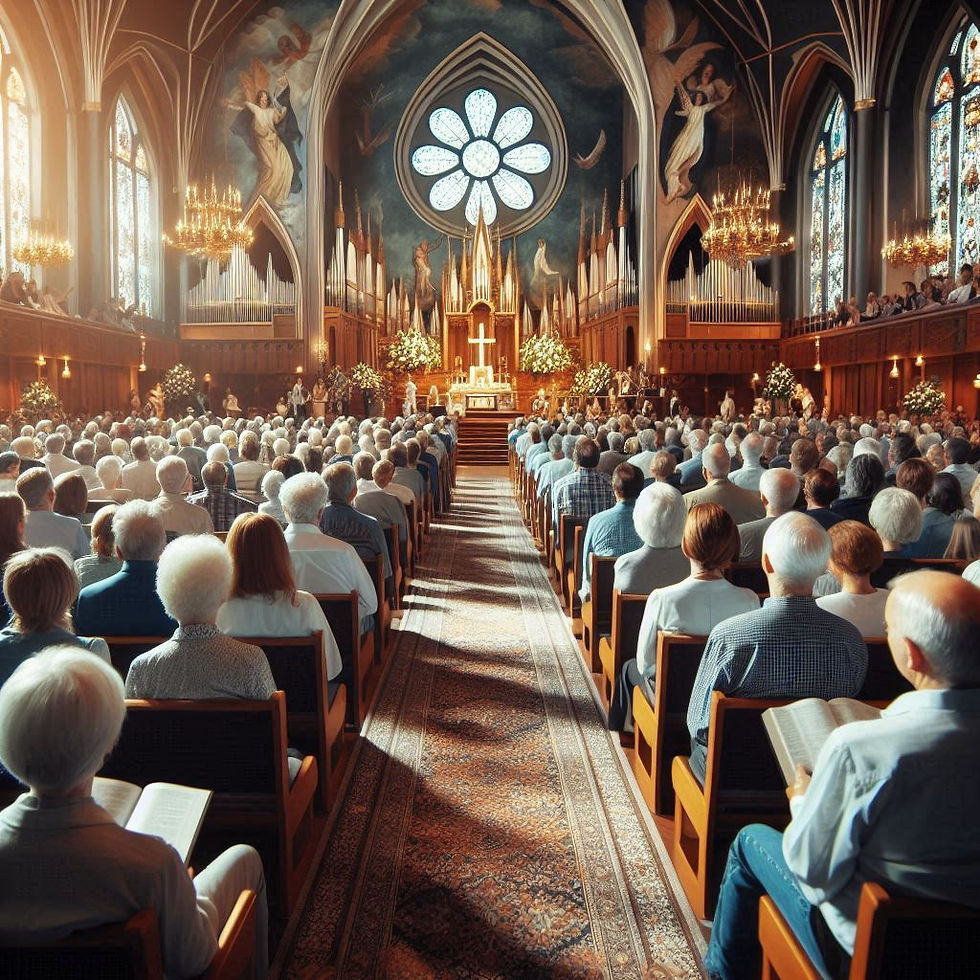The Church Is Most Attractive When We Are One in the Spirit
- Jack Selcher
- Sep 23
- 3 min read

“Have a good week!” is not a “one in the Spirit” wish for the congregation as they leave the worship service and head their separate ways. It assumes no contact for seven days. That is not what Jesus had in mind when He commanded us to love one another (John 13:34-35).
The idea of “oneness” dominates Acts 4:32. From 1964 to 1973, John Wooden’s UCLA basketball teams were NCAA champions nine times.
Those he coached sacrificed personal glory for the good of the team. Jesus’ faithful followers do the same.
The early Christians had everything in common (Acts 4:32). They held their possessions loosely.
Sharing was part of their new identity as members of Christ’s body. Selfless sharing powered their witness (Acts 4:33).
The Holy Spirit inspires oneness and a lifestyle of giving. Beginning in Acts 4:36, we read about Barnabas.
He sold his land and delivered all the proceeds to the apostles to help meet the needs of the Christian community. He was an open channel for the Holy Spirit’s “giving away” ministry.
Churches could benefit from more people like Barnabas and fewer like Ananias and Sapphira. Ananias and Sapphira sought praise while holding back money from a land sale.
They did not have to give away all the proceeds. The problem was that they pretended to do so. God judged them severely because lying destroys the foundation for trust (Acts 5:1-11).
We are like them when we want others in the church to think we are better than we are. Commitment to others includes certain risks.
William S. Rainsford was invited to preach for 25 minutes to an audience of over 2,000 people, including 250 clergymen and bishops. He stuttered and stammered for five or six minutes.
He did not deliver a single clear sentence. He sat down humiliated.
After the meeting, the great preacher Philip Brooks invited Rainsford to preach for him the next Sunday. That was their first meeting. Rainsford said, “Was it any wonder I loved him?”
To live a fruitful life on earth and receive great rewards in heaven, encourage and maximize others. That is what Barnabas and Philip Brooks did. You can too!
You encourage others when you share your doubts and fears along with your victories. Others often identify better with your defeats and struggles than with your successes.
You are not Saint Never Sin, the Divine. I am not either. There is no sense pretending. How frequently do you experience Christians being real? Why?
Acts 5:12-16 describes a church in action that only the Holy Spirit’s working can explain. Willpower cannot sustain a “giving yourself away” lifestyle.
The early church demonstrated a deep commitment to Christ and other believers. They were one in the Spirit. Great churches have always been. It is not easy. Not much worthwhile ever is. What is your takeaway? See additional free spiritual growth resources for Christians.
God has empowered me to write His Power for Your Weakness—260 Steps Toward Spiritual Strength. It’s a free, evangelistic, devotional, and discipleship e-book. Pastors have used it in Malawi, Mozambique, and Zambia to lead 6,671 people to Christ and teach the basics of Christianity to 15,636 people. I invite you to explore and use it in your setting.





Comments